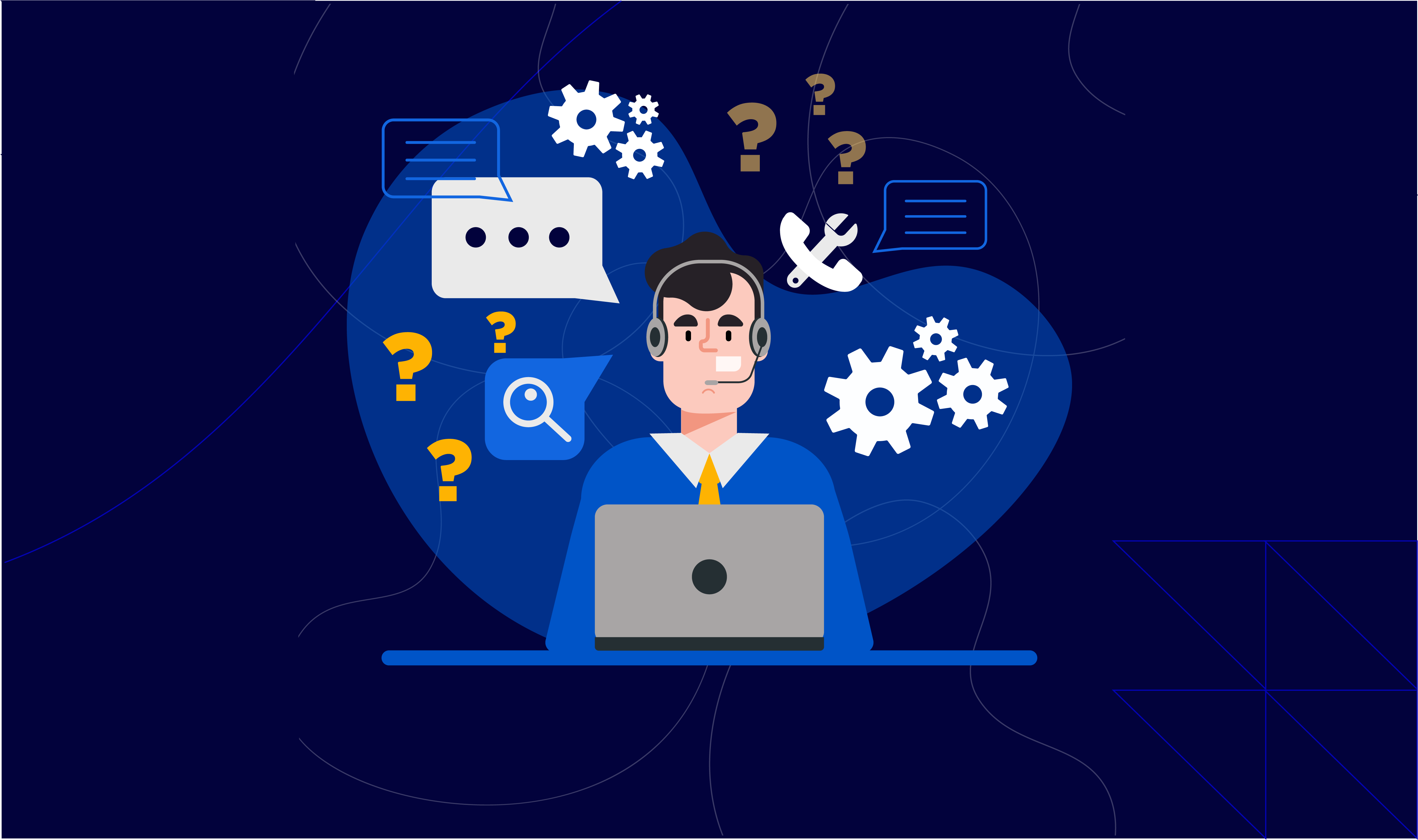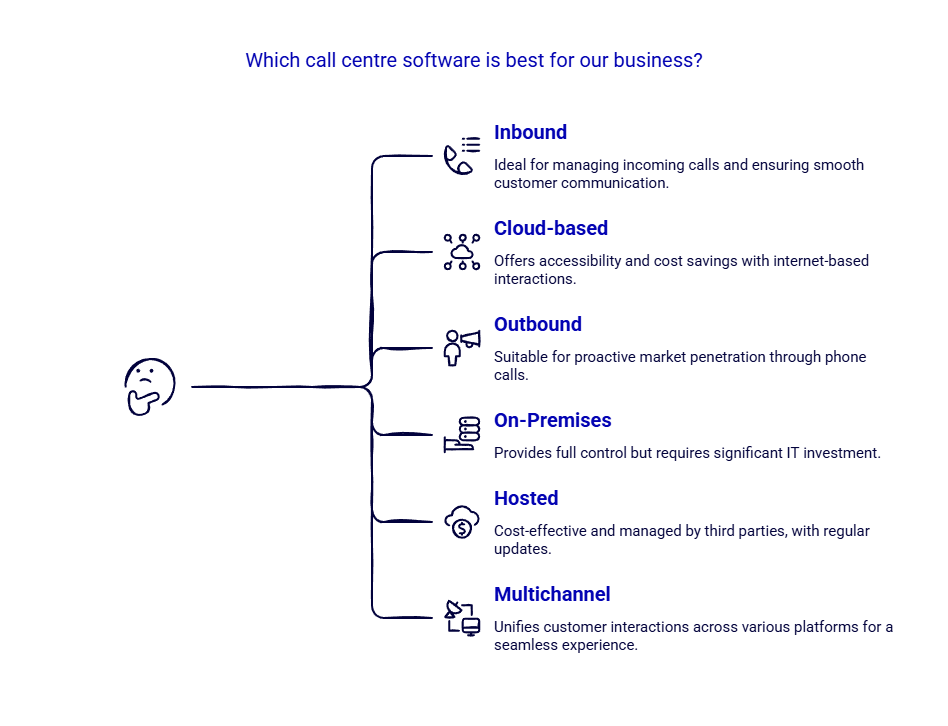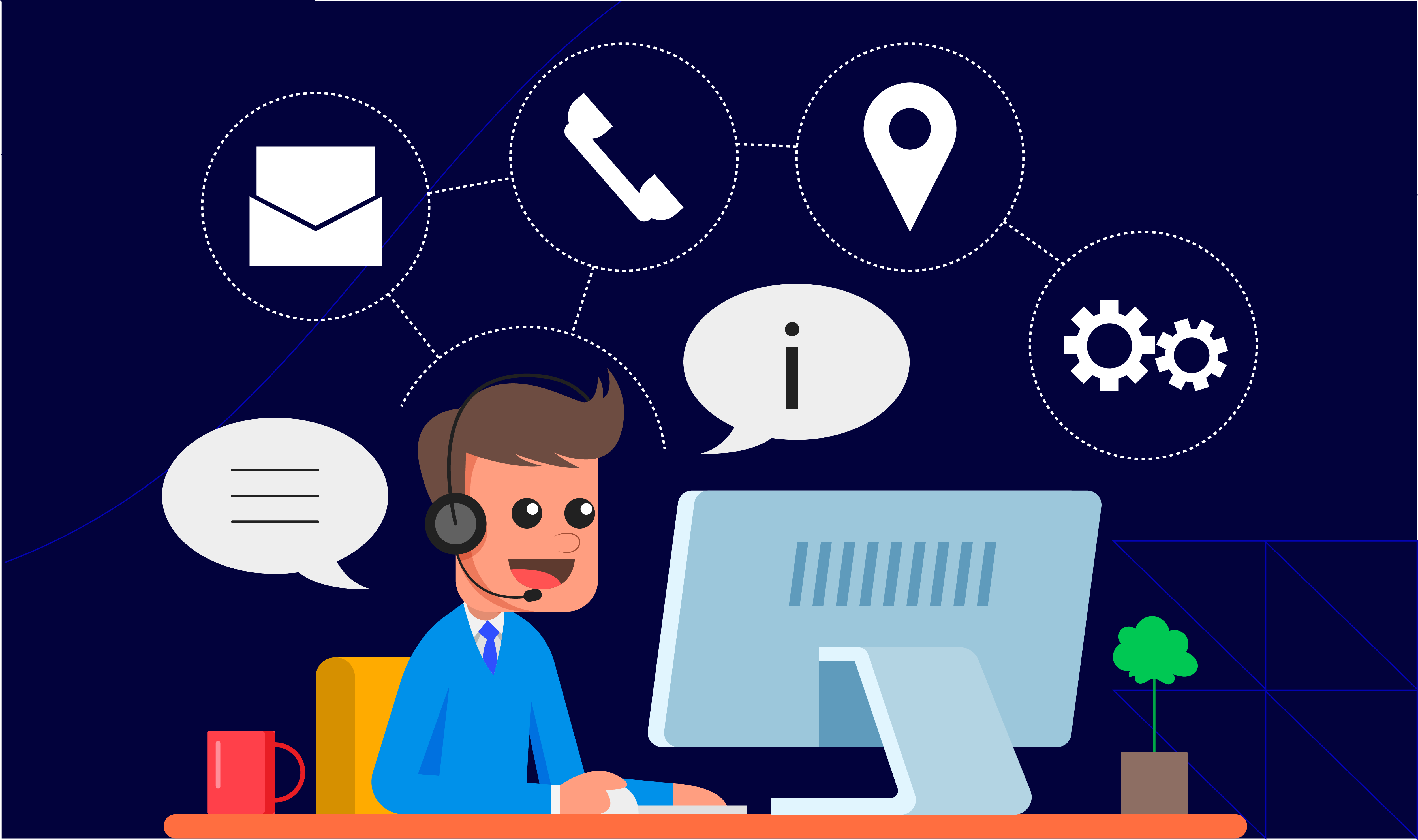The integration of a robust call centre into an organisation is essential to address customers, resolve queries, and expand the customer base to leverage business growth. For CX and operations leaders in consumer and D2C brands across the US, UK & Australia, the right call centre software can provide proactive customer experience (CX) excellence.
Some of the aspects that play an instrumental role in the selection of software are
- Business needs
- Budget
- Goals
- Easy integration
Software deployed in a call centre comprise programmes, platforms, and apps to deliver the tasks without any glitches. At its core, the software works by enabling meaningful communication between call centre agents and customers. With time, call centre software has evolved to include AI-driven analytics, automation and real-time sentiment tracking, helping agents focus on empathy and resolution rather than repetitive processes.
Atidiv’s hybrid human inclusive and AI automation models have enabled clients to achieve up to 99% accuracy, 80% time savings and 50% cost reduction in customer support workflows — see case study.
What Features are Offered by the Best Call Centre Software?

In a high-paced market, reliance on call centre services to drive customer satisfaction is undeniable. While deliberating on how to choose a call center software, the focus should be on omnichannel integration, automation, 24/7 functionality and measurable ROI. A detailed overview of these aspects clarifies why you need to zero in on the best software.
24/7 Functionality: Automation has brought forward 24/7 accessibility that is also effective while dealing with high volumes of calls. With real-time data, Interactive Voice Response (IVR), and intelligent call routing, call centres can maintain up to 98% occupancy rates, far surpassing traditional models when call centres function in 8-hour windows (30% occupancy rate).
Scalability: Scalability is the capacity to meet user demands seamlessly. The software is flexible to adapt to the customer’s needs, which may be in flux. It helps businesses to cope with fluctuating call volumes and controls operational needs with cloud-based features, automation, and flexible resource management. The best software in the market is embedded with omnichannel support, AI and chatbots, and predictive analysis directed towards scalability. Cloud-based architectures and predictive analytics ensure operational agility and resource optimization.
Cost Efficiency: With an improved call centre software, businesses benefit from automation, which reduces the dependency on manual intervention. Thus, fewer employees need to be employed, thus effectively taking down operational costs. These reduced costs on call centre resources facilitate better resource allocation to yield profits. With the implementation of IVR, customers get access to self-service options, thus putting them in complete control of dealing with their requirements. Cloud-based architectures and predictive analytics ensure operational agility and resource optimization.
Increased Revenue: Data-driven customer service directly impacts sales outcomes. 88% of customers say a positive experience increases their likelihood of purchase. Better customer satisfaction, which is achieved by offering round-the-clock services, translates to upselling and increased revenue. Call centre software is a powerful asset to identify key performance areas and provide targeted training to enhance services and gain a competitive edge in the market.
Atidiv’s clients have seen 65% employee cost savings and $450K annual ROI through outsourced CX solutions, see case study.
What Call Centre Software is Best for You?

Call centre software is classified based on the calls handled: AI-powered, inbound, outbound, cloud-based, on-premises, hosted and multichannel. Today, almost all the various types of call centre software are equipped with Automatic Call Distribution (ACD), call recording, real-time analytics, CRM, call routing, and are supportive of multi-channel communications that encompass e-mail, customer messaging platform, social media support, and voice support services. Understanding the features of the different types of software is essential to optimise customer service operations and assure maximum value:

- Inbound: This feature deals with incoming calls for outsourced call center solutions. Inbound call centre services facilitate smooth communication between customers and call centre representatives.
- Cloud-based: Cloud-based features enable interactions with the customer via the internet. It is equipped with interactive voice response and automatic call distribution. The software is synonymous with better accessibility and reduced expenditure, and a robust physical infrastructure.
- Outbound: For businesses that are heavily inclined toward proactive phone calls for market penetration, outbound call center services software plays a fundamental role.
- On-Premises: The traditional on-premises call centre software requires the servers to be located in the company’s physical location and requires physical ownership and control of the hardware. Specialised IT staff are hired to manage the functionalities.
- Hosted: Such software is entirely cloud-based. Calls are run through servers and handled by third parties. Like any other SaaS product, the software receives updates and support at low costs.
- Multichannel: A multichannel call centre software operates across different platforms and channels, such as phone, e-mail, text, and social media. Unifies customer interactions across multiple touchpoints for a seamless experience.
Atidiv leverages cloud-based and multichannel call centre frameworks to deliver 95%+ quality assurance across diverse industries, see how $20M+ in savings was achieved through scalable solutions.
What is the Focus of Call Center Solutions for Small Businesses?

BPOs feel the persistent pressure of delivering consistent, excellent, and personalised customer services while catering to operational and marketing needs. These functionalities are often carried out with limited resources. Therefore, business ventures resort to call centre software to maximise their potential. The software meets the demands across the inbound and outbound channels through various communication tools and improved features. The call centre solutions are on-premise model, cloud-based model, and hybrid model. Each model warrants different cost planning and infrastructure needs. Modern call centre software allows small and midsize businesses to deliver enterprise-grade CX without enterprise-level costs.
- Customer Support: Small businesses build on customer loyalty and support, which is achieved by providing consistent responses, queuing, and IVR. Atidiv’s features, like the customer messaging platform, allow for improved customer satisfaction and strong business relationships. Atidiv’s customer messaging and live chat platforms boost satisfaction through quick resolution and humanized interactions.
- Sales Enhancement: Sales take a leap with outbound communication features, such as automation, predictive dialling, and lead tracking. The sales team is thus better enabled to meet sales targets and speed up the deal closure cycles, thus ultimately leading to better lead-to-conversion ratios.
- Data-Centric Decision-Making: Businesses gain insights from built-in analytics tools and are capable of churning data on call volume, performance of call centre agents, and employee satisfaction. These features enable strategic planning to improve the services and align them with customer preferences and requirements.
- Outsourcing: Small-scale businesses opt for outsourcing customer handling and communication to external call centres to focus on core business needs and reduce operational costs.
What Features Make for the Best Call Centre Software
What determines a good and efficient call centre software?
- Interactive Voice Response: IVR is a virtual receptionist responsible for attending to repetitive and redundant yet important tasks without manual intervention. IVR generates automated responses 24/7 and provides self-service options to customers. It reduces lags in the completion of the tasks. In a nutshell, to look after the uncomplicated and repetitive tasks, IVR is of utmost importance.
- Skills-Based Routing (SBR): This feature assesses the skill of call centre personnel to assign them calls based on their knowledge and expertise. As per records, 82% of customers expect first-contact resolution. Calls are not handled randomly and are instead assigned to the best agent who is capable of looking into the issue. Besides ensuring customer satisfaction, SBR reduces abandoned calls and facilitates first call resolution. SBR is compatible with email, videos, chats, social media platforms, and phone calls.
- Data Encryption: A software enabled with data encryption protects customer information in compliance with data regulation protocols. Studies show that the demand for encryption software is bound to increase at a rate of 14.8% on a compound yearly basis, and has the potential to reach 16.5 billion USD by 2026. Furthermore, disk encryption, secure file transfer protocols (SFTP), and database encryption are used to protect sensitive data, prevent any damage to the business’s reputation, compliance-driven encryption builds brand trust and a relationship with customers.
- Cloud-Based Solutions: Cloud based call center software bestows scalability, accessibility, and cost-effectiveness, and is, therefore, a highly sought-after feature in a call centre software. This feature allows remote work for the call centre employees, real-time analytics, reduced need for physical infrastructure and expenses, and incorporation of various communication channels. Agents are not required to perform any updates and maintenance as the cloud providers look after it. Agents can operate remotely with real-time analytics while cloud providers handle updates and maintenance.
- Cloud Hosted Calling: Cloud telephony delivers voice communication through the internet instead of phone calls, providing a modern and cost-effective alternative to on-premise phone systems. It can be integrated with CRM tools for accessing call logs, managing customer interactions, and automating tasks such as setting follow-up reminders.
- Omnichannel Routing: This feature manages customer interaction across the different channels available. Customers are at liberty to switch between channels for the best support. This switching neither compromises their issue resolution time nor does it require them to repeat the issue. Omnichannel is fast in reducing idle time and frees agents to help them focus on issues that best align with their potential and expertise.
- CRM Integration: CRM integration helps agents have easy access to customer data for personalised interactions and reduces the need to perform redundant tasks. Each time a customer calls, the agent can swiftly retrieve the relevant details required to resolve their issue. When call data is combined with CRM, businesses gain insights into customer demands and queries and assess agent performance to further improve the services provided.
- Flexible Pricing: The option to choose different payment structures, such as tiered subscriptions, per-user pricing or a pay-as-you-go model, helps businesses with software that aligns with their needs and adapts when needed. Such flexibility in the pricing segment lets businesses scale up and down when required, especially during seasonal fluctuations or uncertainties. Atidiv, being one of the best call centre outsourcing companies, provides competitively priced outsourcing solutions tailored to small and midsize CX operations.
Atidiv helps D2C and consumer brands optimize CX through data-driven call centre management, automation and hybrid human-AI workflows.
From omnichannel customer support to AI-powered insights, Atidiv’s solutions deliver consistent performance, measurable savings and enhanced brand loyalty.
- 99% accuracy & 80% time savings for a startup
- 65% employee cost savings for a major retailer
- 20M+ savings via high-volume management and 95%+ quality
FAQs On Best Call Center Software
1. Can an advanced call centre software help me scale up my business?
The technologically advanced call centre software is designed for scalability and growth. The features not only help with accelerating growth but also consistently support growth with their many features. With good software, businesses can easily deal with a surge in demand and operational efficiency without compromising on service quality.
2. Which industries are most dependent on call centre software?
A wide range of industries fall back on call centre software. Telecommunications, financial and banking, retail, e-commerce, travel and hospitality, IT and health avail call centre software to upgrade their business operations.,
3. Can call centre software integrate with other business tools?
Yes. Modern platforms integrate seamlessly with CRMs, analytics dashboards and AI automation tools, ensuring cohesive operations and better decision-making.


